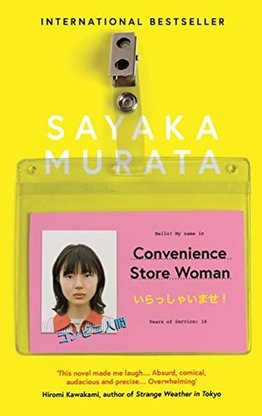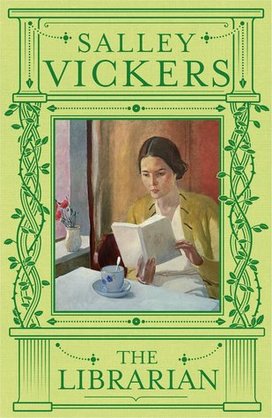Convenience Store Woman by Sayaka Murata translated by Ginny Tapley Takemori
But her friends and family aren’t satisfied. With a decent education, shouldn’t she have found herself a better job? Or, failing that, a husband, to give her the status she lacks as a woman alone. When Shiraha joins her shift he seems her exact opposite, with his grumbles and his lackadaisical attitude to work. But each might be what the other needs to silence the hectoring voices of those who believe an adult should make more of their life.
Part-time convenience store worker Sayaka Murata’s debut is a light novella about the pressures to conform to societal norms of female identity that has become a bestseller in Japan. Keiko is Eleanor Oliphant without the traumatic childhood and with a stronger drive to fit in. She also reminded me of a (male) checkout operator in one of my local supermarkets who might thrive in a shop like Keiko’s with less discretion about how to behave.
Keiko’s work culture was perhaps more akin to a fast-food or coffee franchise in Britain where, I understand, jobseekers must demonstrate an unnatural enthusiasm for the product and zero-hours minimum-wage staff are required to present themselves to customers as eternally upbeat. Over time, the suppression of individuality – as illustrated in The Beautiful Bureaucrat – would be stultifying for many but the perfect environment for people like Keiko. Unfortunately, at least in Britain, these people are less likely to be employed.
I also wondered how much the cultural standard of female identity translates from the Japanese. I was puzzled by the frequent references to a “housewife”, which I interpret as an outdated term for an outdated role of a woman who tends to the home while her husband does the real work outside, but here seems to apply to any married woman without a career. Call me overoptimistic about the reach of feminism, but I believe there are a wider range of options for a woman in the UK.
That needn’t detract from a Western’s enjoyment of this novella which came to me courtesy of Portobello books. See Wabi-Sabi and My Falling Down House for other novels about Japanese culture.
The Librarian by Salley Vickers
Brimming with youthful enthusiasm, Sylvia sets about recruiting more readers and replenishing the somewhat outdated stock. She forges alliances with the primary school teachers, befriends the gifted son of her next-but-one neighbours and his endearingly cheeky twin younger sisters and, with his help, coaches her landlady’s neglected granddaughter through her 11 plus exam.
While Sylvia is a hit with a part-time volunteer colleague, her boss seems determined to clip her wings. Similarly, while the wider community is generally charmed by the new arrival, her immediate neighbour has nothing but complaints. About the children playing in her garden and the foxes burrowing beneath the brambles. Unfortunately, this neighbour not only chairs the Library Committee but he’s also a friend of her boss.
Life gets more complicated when Sylvia falls for the town’s new doctor, who happens to be a married man. Then there’s his precocious pre-teen daughter leading the neighbours’ son astray. When trouble brews amongst the children, Sylvia blames herself for having introduced them. But she’s appalled at the level of threat to their futures, the library and her own career.
Salley Vickers is responsible for one of my earliest fictional therapists, but The Librarian is a much lighter read. Indeed, despite the sex, it reminded me of one of those classic children’s stories Sylvia so adored. It also verged on the “worthy” at times with the critique of an education system that divides children into successes and failures at eleven and, through a tagged-on contemporary strand in which one of the children returns as a successful author, an underlining of the impact of libraries on children’s lives.
Nevertheless, The Librarian would make a satisfying holiday read, especially for those old enough to appreciate the lovely period detail. Thanks to Viking Penguin for my review copy. If you think you’d enjoy it, and your finances can take it, I’d recommend the hardback with its gorgeous retro-style cloth cover, and endpapers credited to the Victoria and Albert Museum. Finally, a quick shout for my short story about a librarian, “A Place of Safety”, which will appear in my forthcoming anthology, Becoming Someone.























 RSS Feed
RSS Feed





















